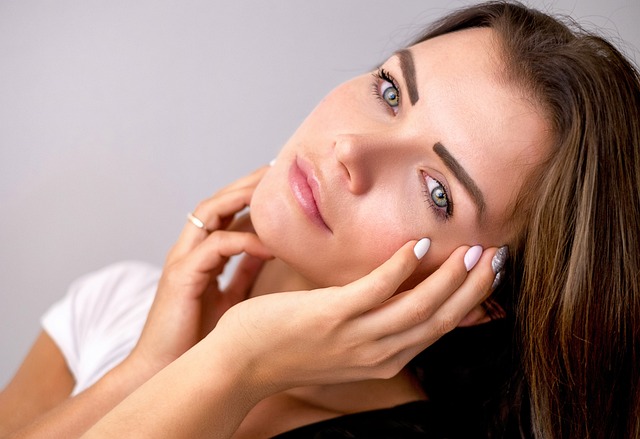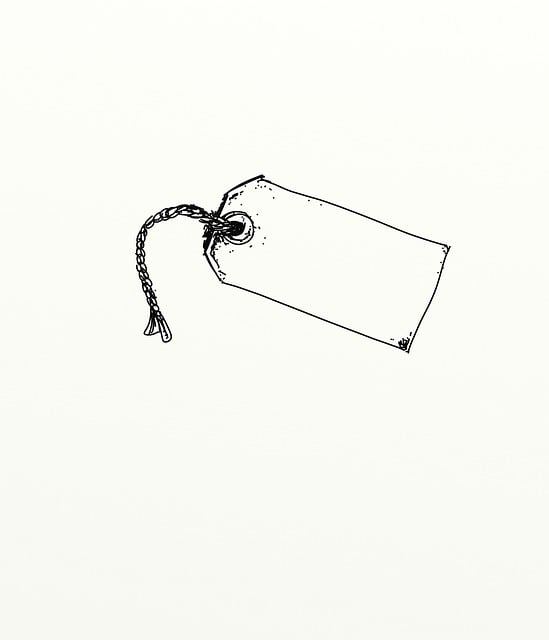In Leeds, skin tags, known as acrochordons, are common benign growths that can be addressed through professional removal services. These services, including Tag Removal Leeds, offer safe and effective options like surgical snip excision, cryotherapy, and electrocautery, chosen based on tag size, location, and individual health considerations. It's important for individuals to consult with healthcare professionals before removal due to the potential for skin tags to signal other health conditions or obscure underlying skin cancers. Regular check-ups are recommended to monitor skin health and address any changes promptly. The risk of complications such as infection, pain, and malignant transformation justifies seeking medical intervention, especially when tags become large, pedunculated, or show abnormal signs. In Leeds, residents should prioritize engaging with qualified medical experts for personalized treatment that ensures safety and optimal outcomes. By doing so, one can effectively manage skin tags and maintain overall skin health and well-being.
Skin tags are common, benign skin growths that many individuals encounter. While often harmless, their presence can raise concerns about appearance and potential health risks. In Leeds, understanding the nature of skin tags and the risks associated with neglecting them is crucial for maintaining skin health. This article delves into the risks of not removing skin tags, from minor irritations to significant complications, and guides readers through the professional tag removal options available in Leeds. By recognizing when a skin tag might require medical attention and being informed about the various removal methods, individuals can make educated decisions to ensure their well-being and aesthetics.
- Understanding Skin Tags: What Are They and Why Consider Tag Removal in Leeds?
- The Risks of Neglecting Skin Tags: Potential Complications
- Identifying When a Skin Tag Requires Professional Attention in Leeds
- Common Methods of Skin Tag Removal: Weighing Your Options in Leeds
- Long-Term Implications of Untreated Skin Tags: A Look at the Risks and Preventive Measures in Leeds
Understanding Skin Tags: What Are They and Why Consider Tag Removal in Leeds?

Skin tags, also known as acrochordons, are small, benign skin growths that typically present as soft, fleshy components attached to the skin by a stalk. They can appear on any part of the body but are most common in areas where the skin folds or rubs against itself, such as the armpits, groin, under the breasts, and around the neck. In Leeds, as with many other regions, individuals may seek tag removal for cosmetic reasons, discomfort, or potential health concerns.
The decision to remove skin tags in Leeds should be informed by a comprehensive understanding of these growths and their implications. While generally harmless, skin tags can sometimes become irritated or infected, particularly if they are located in areas subjected to frequent friction or rubbing. This can lead to discomfort or pain. Moreover, although rare, there is a possibility that skin tags may indicate an underlying health issue, such as insulin resistance or polycystic ovary syndrome (PCOS). Therefore, for those considering tag removal services in Leeds, consulting with a healthcare professional is crucial. They can assess the growths, determine if they are likely benign, and advise on the best course of action based on individual health status and concerns. Professional tag removal ensures proper sterilization techniques and precise excision to minimize the risk of infection or complications. It’s advisable to engage with reputable clinics specializing in tag removal in Leeds to ensure optimal safety and results.
The Risks of Neglecting Skin Tags: Potential Complications

Neglecting skin tags, which are benign growths on the skin, can lead to a range of potential complications. Over time, skin tags can become larger or multiply, potentially interfering with daily activities or causing discomfort and irritation, especially when they rub against clothing or jewelry. In such cases, professional tag removal in Leeds, provided by experienced dermatologists or healthcare professionals, is advisable. Untreated skin tags may also become twisted or inflamed, leading to a decreased blood supply and potentially resulting in what is known as ‘strangulated skin tags.’ This condition can be painful and may necessitate more complex medical procedures for removal. Additionally, constant friction from clothing or accessories can lead to infection or even cancerous changes in the cells, although this is rare for common skin tags. Regular check-ups with a healthcare provider can help monitor any changes in existing skin tags or identify new ones that require attention. For those considering tag removal in Leeds, it’s prudent to consult with qualified medical professionals who can provide safe and effective treatment options tailored to individual needs.
Identifying When a Skin Tag Requires Professional Attention in Leeds

When a skin tag presents certain characteristics or causes discomfort, professional medical attention is warranted for safe and effective tag removal in Leeds. Skin tags that are large, pedunculated (hanging on a stem), or located in areas where they may catch on clothing or jewellery, increasing the risk of bleeding or infection, should be assessed by a healthcare provider. Additionally, any skin tags displaying signs of changes in colour, texture, or size, or those that are rapidly growing, could be indicative of underlying health issues and should not be attempted to be removed without medical supervision. In Leeds, certified dermatologists or general practitioners can provide tag removal services that ensure the procedure is performed under sterile conditions, minimizing risks and promoting proper healing. It’s crucial to consult with a professional for a proper diagnosis and to discuss the most suitable tag removal options available in Leeds, ensuring both safety and optimal outcomes.
Common Methods of Skin Tag Removal: Weighing Your Options in Leeds

When considering the removal of skin tags, individuals in Leeds have various options to weigh against their personal health needs and preferences. Skin tag removal is a common procedure performed by healthcare professionals, including general practitioners, dermatologists, and specialist clinics offering cosmetic services. The most prevalent methods for tag removal in Leeds include surgical snip excision, where the skin tag is cut off with sterile scissors; cryotherapy, which involves freezing the tag with liquid nitrogen; and electrocautery, a technique that uses an electric current to remove the base of the skin tag. Each method has its advantages and considerations; for instance, surgical snip excision offers immediate results but may require stitches, whereas cryotherapy is less invasive but requires multiple treatments to ensure the tag is completely removed. Electrocautery, on the other hand, can be performed quickly with minimal downtime.
For those in Leeds considering skin tag removal, it’s advisable to consult with a medical professional to determine the most suitable method based on factors such as the size, location, and overall health of the individual. The chosen removal method should be safe, effective, and align with personal comfort levels. It’s also important to consider aftercare and any potential risks or side effects associated with each treatment option. By understanding the different approaches to skin tag removal available in Leeds, individuals can make an informed decision that promotes their health and appearance, ensuring they receive the best care for their needs.
Long-Term Implications of Untreated Skin Tags: A Look at the Risks and Preventive Measures in Leeds

Skin tags, commonly known as acrochordons, are benign skin growths that can occur anywhere on the body. In Leeds, as in many other regions, understanding the long-term implications of untreated skin tags is crucial for maintaining overall skin health. Over time, these harmless lesions can potentially become irritated, especially if they are located in areas subject to frequent friction or rubbing, such as under a watchband or within clothing folds. This irritation may lead to inflammation, increased size, or even the development of secondary infection sites. Furthermore, while skin tags themselves are not known to harbor cancerous cells, their presence can sometimes mask the development of skin cancers, particularly in areas less visible or regularly overlooked during self-examinations.
In the context of Leeds, individuals considering tag removal should consult with healthcare providers who specialize in dermatological services. Professional tag removal in Leeds ensures that the procedure is carried out safely and effectively, minimizing the risks associated with at-home remedies or improper techniques. It’s advisable to seek treatment from reputable clinics like those offering Tag Removal Leeds services, where trained professionals can provide precise and safe removal methods tailored to individual cases. Regular monitoring and timely medical advice are key preventive measures against potential complications arising from untreated skin tags. By staying informed and proactive about skin health, residents of Leeds can maintain clear, healthy skin and reduce the risk of associated complications.
When managing skin tags, it’s crucial to consider the potential risks associated with neglect. Untreated skin tags may not always pose significant health concerns, but they can become irritated, infected, or even impede daily activities due to their location. In the context of Leeds, where individuals are mindful of both health and aesthetics, it’s prudent to seek professional tag removal services. The various methods available in Leeds, including cryotherapy, surgical excision, and electrosurgery, offer safe and effective solutions tailored to individual needs. Ultimately, addressing skin tags promptly can prevent complications and ensure the best outcomes for one’s health and appearance. For residents of Leeds seeking a reliable approach to tag removal, consulting with a healthcare professional is the first step towards maintaining skin integrity and overall well-being.
